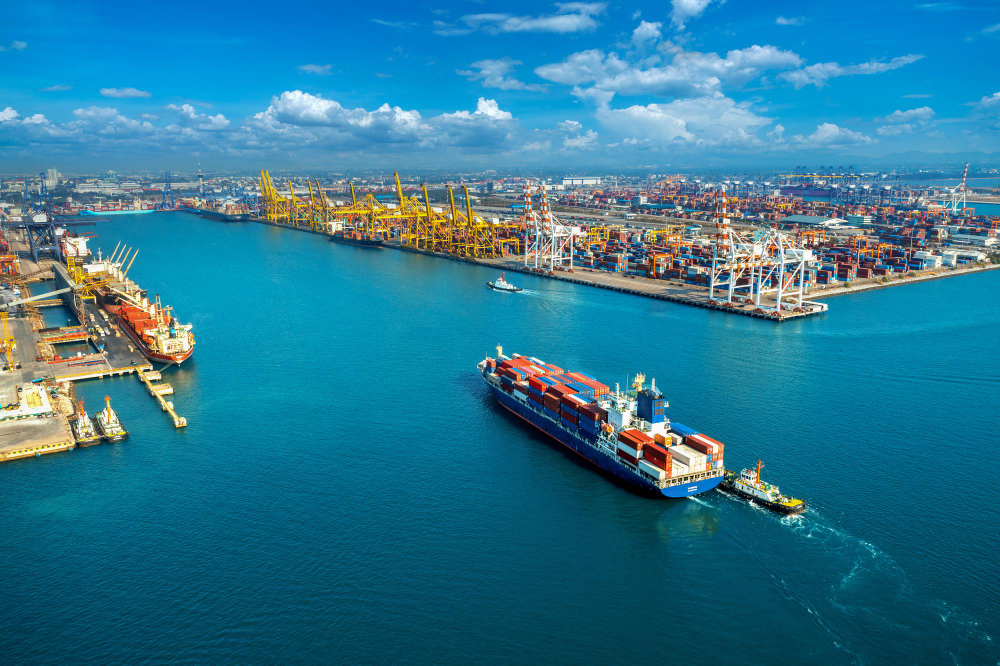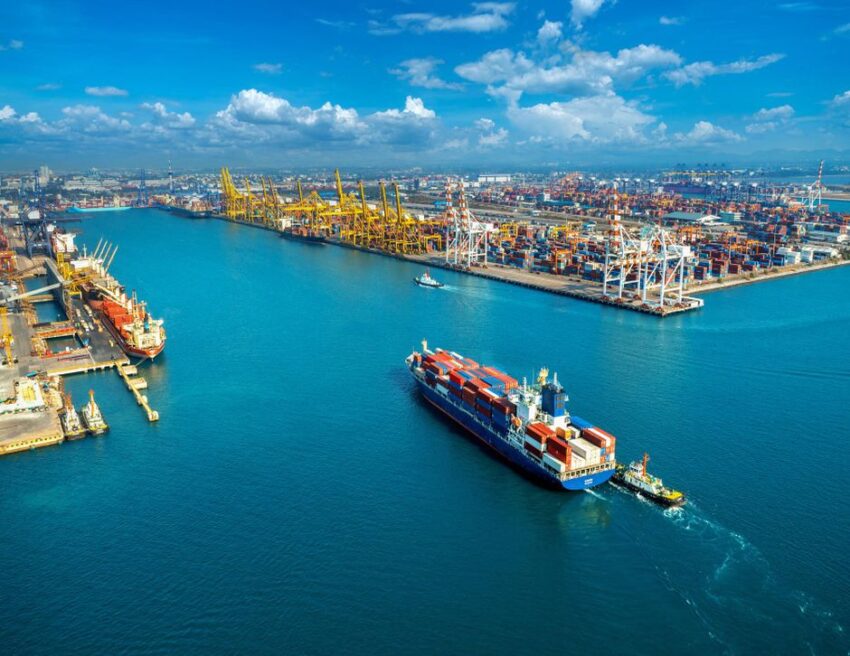The ports play one of the most important parts in the container shipping industry by connecting goods with the exporters and importers. They form an integral component of international supply chain operations and have now transformed themselves into an entire ecosystem. These days, the concept of smart ports is in vogue. Simply put, smart ports are those ports that are becoming more competent by complementing their manual processes with digitized operations. According to a report by Market and Markets, the net market worth of smart ports across the world will be worth $5.7 billion in 2027.
Smart ports are the ones that make use of technologies like AI, Big Data, IoT, and Blockchain to bolster their performance. The need to become ‘smart’ has become all the more pronounced these days. With the changing needs of the modern supply chain- the sizes of the ships are increasing, the volume of cargoes is getting bigger, and shippers want their goods to move faster. In a situation like this, the smart ports have become essential infrastructure for smooth international trade.

The importance of smart ports for the container shipping industry
The container shipping industry in the 21st century is getting bigger. The maritime shipping sector has finally woken up to the call of digitization and carriers have already started experimenting with autonomous shipping. With a globalized economy, things need to be moved faster therefore embracing the age-old processes is no longer an option. It has become imperative for the top international ports to digitize their operations for staying relevant and competitive in the industry. Moreover, the competition between ports is increasing by the day, therefore adopting new technologies makes the ports more attractive.
A smart port makes use of smart technology to increase its efficiency and enhance its economic competitiveness and performance. Moreover, the implementation of automated processes is not only advantageous for the port, but for the entire supply chain. Smart ports are the ones where the online platforms and the workforce work in tandem with real-time sharing of data. Their effectiveness hinges on the collaboration of human intelligence and technology which in turn leads to smoother operations and convenience for the customers.
Smart ports around the world
-
Port of Rotterdam
This port probably started the most ambitious digitization project ever made in the history of ports. One of the oldest and longest ports on the planet, the Port of Rotterdam is digitalizing every aspect of its port including the port containers. They are making use of the Digital Twin technology to this end. Digitization has allowed them to make accurate forecasts to boost their efficiency and competitiveness in the soon-to-be digitized shipping industry.
-
The Port of Quebec
The Port of Quebec is yet another example of a smart port that is putting the city as well as its inhabitants at the core of its digitization endeavours. This is because they have allotted 20% of the port territory to recreational activities and tourism. Apart from its efforts toward digitization, this port is also undertaking a green project initiative by planting trees in the area surrounding the ports.
-
The Port of Barcelona
The Port of Barcelona is also undertaking several initiatives to upgrade and digitize the majority of its port operations. Moreover, they are also taking a major step in decarbonization by using renewable energies and new kinds of fuel. Additionally, they have also implemented a ‘smart grid’ that allows for better energy management. The Port of Barcelona is also providing onshore energy supply from this grid to the vessels and is incentivizing the use of LNG as opposed to traditional fuel.
Some of the other international ports that are in the process of becoming ‘smart’ include the Port of Hamburg, the Port of Los Angeles, and the Port of Montreal.
-
The Asia Pacific region is coming up as the largest smart port market
Last year, the Asia Pacific region accounted for the largest share in the smart port market. This is because a large number of ports in China, Singapore, South Korea, Japan, and Australia have implemented digitized operations. Additionally, this region has an increasing number of ports every year with considerable modernization and expansion of the existing ports. The main reason behind this is that the majority of cargo in this area is moved by container ships. The ports in the Asia Pacific region are enhancing their efficacy by implementing automation, the use of new equipment, and employee training.
Smart ports are the next big step in the container shipping industry. These ports are way more efficient and are the ports of the future. They not only focus on technological innovations but also promote sustainability, and take into account, the residents, the community, and the environment.


